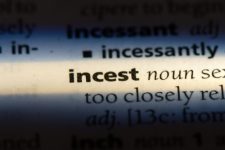Incest Laws in NSW

In NSW offence of incest was formally made a criminal offence in 1924 under section 78A of the Crimes Act 1900 (NSW) (the Act) . Incest is defined as “consensual sexual activity between members of a family within certain specified degrees of “consanguinity” above the age of consent.”
Section 78A(2) of the Act specifies that “close family members” refers to parents, children, siblings (even half-siblings), grandparents, and grandchildren, essentially anyone closely related by blood.
To understand incest charges, it is essential to know how the law defines “sexual intercourse” under section 61HA of the Act. This definition covers the following various forms of sexual contact:
- penetration to any extent of the genitalia or anus of a person by any part of the body or any object of another person;
- introduction of any part of the genitalia of a person into the mouth of another person;
- application of the mouth or tongue to the female genitalia; or
- continuation of the above.
Therefore, for someone to be charged with incest under section 78A, the prosecution must establish the following elements:
- sexual intercourse took place;
- with a close family member; and
- the other party had been 16 years old or older.
Interestingly, NSW law requires an additional layer of scrutiny before incest cases proceed in court. Pursuant to Section 78F, any prosecution for incest or attempted incest must first gain the approval of the NSW Attorney General. This approval process ensures that cases are thoroughly evaluated and adds an extra level of oversight given the sensitive and often complex nature of these cases.
Criminalisation of Incest
Before 1924, incest was not considered a criminal offence in NSW, as it was largely seen as a moral failing and was dealt with by religious, rather than legal authorities. Additionally, incest had been seen as an “expression of the strength and status of the social purity movement”.
Over time, societal views evolved, and attitudes towards family and moral boundaries shifted. Relationships between close family members began to be seen not only as immoral but also as a violation of societal norms. As these perspectives became widely accepted, the criminalisation of incest followed, leading to the legal framework we see today in NSW. This shift is now reflected in various parts of the Act, including sections 78A, 78B, 78C, and 78F, which collectively reinforce the prohibition against incest and underscore its societal condemnation.
Incest Laws in Australia
Under Section 78A of the Act, the penalty for committing incest with a close family member aged 16 or over is severe, with a maximum penalty of 8 years imprisonment. Even attempting to commit incest is a criminal offence, covered under Section 78B, with a maximum penalty of 2 years imprisonment.
Section 78C(1) of the Act contains a statutory defence to the charge where the defendant genuinely ‘did not know that the person with whom the offence is alleged to have been committed was related to him or her.’
Additionally, other general defences may apply, including:
- Duress: When someone is forced or threatened into committing the act.
- Automatism: When the act was involuntary or committed under a state of impaired consciousness.
It is essential to note that, under Section 78C(2), consent from the other family member does not serve as a defence in incest cases. Even if both parties agree, the act remains a criminal offence under NSW law. This strict stance reflects the legal commitment to maintaining boundaries within family relationships, regardless of mutual agreement.
NSW judge under fire for remarks about incest
NSW District Court Judge Garry Neilson attracted criticism in 2014 when he refused to allow “tendency evidence” in a case concerning a 58-year-old man known only as ‘MRM’, who allegedly sexually assaulted his sister several times in 1981, when she was aged 17 or 18.
Tendency evidence is that which shows a pattern of behaviour – and therefore indicates that the defendant has a tendency to act in a particular manner or has a particular state of mind.
Tendency evidence is not admissible unless it has ‘significant probative value’.
In the MRM case, the tendency evidence which was ruled inadmissible concerned the defendant’s decision to plead guilty to sexual assault charges involving the same complainant several years previously, when she was aged 10 or 11.
The prosecution argued that this showed that the defendant had a tendency to have a sexual interest in his sister, and to have sexual relations with her.
But Judge Neilson disallowed the evidence, saying that the sexual conduct that was the subject of the present trial occurred in a different context to that which occurred when the complainant was a child.
According to the Judge, the two incidents differed due to the difference in the complainant’s age at the time of each offence, and the fact that the later alleged offence occurred after she had had other sexual relationships with men and had given birth to a child.
In handing down his decision, the Judge commented that ‘a jury may find nothing untoward in the advance of a brother towards his sister once she had sexually matured, had sexual relationships with other men, and was now ‘available,’ not having [a] a sexual partner.’
The Judge then compared incest to homosexuality, making the point that homosexuality was once considered ‘unnatural’ and ‘taboo’ – implying that incest may one day become as widely accepted as homosexuality.
He then went on to concede that incest was currently criminalised because of the potential for it to result in genetic abnormalities in children, but then stated that these risks could be reduced through contraception and abortion.
He apologised for his comments in the wake of the public outcry.






